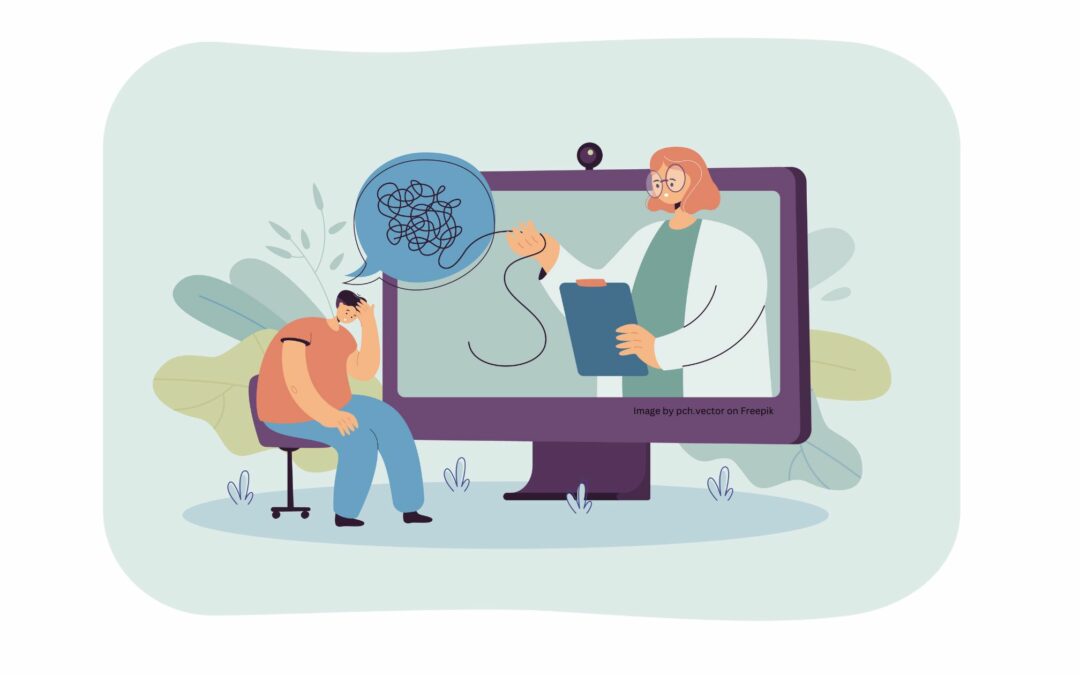Can technology support better mental health
Historically, technology has had a bad reputation when it comes to mental health. Many studies have noted the link between increased time spent on social media being associated with a higher risk of loneliness and depression, with people checking social media frequerntly 2.7 times more likely to develop depression and/ or anxiety. But as we become increasingly dependent on technology, is there some hope for the future?
As technology advances and Artificial Intelligence (AI) and automation is becoming a bigger part of everyday life, we find ourselves in an interesting position where technology could play a positive role in nurturing our mental health. We strongly believe that it can, and not only that, but it should. As the relationship between technology and mental health evolves, technology has the potential to emerge as a lifeline for those seeking support.
Technology as a double-edged sword
Technology’s impact on mental health has been a topic of ongoing debate for some time. While some argue that excessive screen time and digital distractions can contribute to stress and anxiety, that does not mean that technology does not hold the potential to transform mental health care. Using technology, we could make mental health care more accessible and effective than ever before.
Technology as a stressor
It is very easy to name technology as the bad guy in the battle of mental health. Schools and parents often ban access to social media for children and teens over fears of what it will do to them. Many adults choose to have ‘social media detoxes’, deleting all the apps and revel in the time and mental freedom this offers them. Some of the main contenders for this viewpoint include:
- Digital overload. The constant ding of notifications, social media pressures and the never-ending stream of information can very easily contribute to information overload and stress. As our lives have become increasingly digital, we have seen a rise in people constantly, almost obsessively, checking their online profiles, unable to contemplate time away from their devices.
- Isolation. Although social media gives the illusion of allowing constant communication and companionship, spending a lot of time online can actually have the opposite effect. Rather than feeling closer to friends, you end up feeling isolated and lonely, common contributors of poor mental health.
- Comparison culture. Social media platforms encourage us to compare our lives to others. Often this means comparing the worst parts of our lives with the edited, perfected highlights of others. Inadequacy often leads to anxiety; why isn’t our life as easy and perfect as theirs?
Technology as a source of support
Technology is very rarely portrayed in a positive light in the battle with mental health, but there are several notable instances where technology can act as a source of support:
- Mental health apps. There are a growing number of apps aimed towards mental health, offering tools for meditation, mood tracking and access to self-help. All of these empower the users to take control of their mental well-being.
- Digital therapy platforms. Online therapy platforms have made mental health care more accessible, enabling individuals to seek the help they need from the comfort of their own homes. It also gives people access to a much wider range of specialists, allowing for more personalised treatment.
- Community and support groups. Online communities and forums allow people to connect with others facing similar challenges, offering a sense of belonging and support. Being able to do this digitally also relieves some of the pressure, as it allows a certain sense of anonymity.
The transformative power of technology
Technology is ushering in a new era of mental health care, offering solutions which were once unimaginable. One significant development is the rise of digital therapeutics. Cognitive Behavioural Therapy (CBT) apps, for instance, offer users easy access to structured self-help programmes which can help manage anxiety and depression. Similarly, mood-tracking apps allow people to monitor their own emotional well-being, as well as easily share data with professionals to enhance personalised care.
The integration of AI is rapidly updating the diagnostic and support capabilities within mental health technology. Using sophisticated algorithms, AI-powered platforms can analyse patterns in user behaviour and flag potential issues, providing quick, valuable insights into a user’s mental health status. They can also quickly provide the user with the next steps, helping to link them with resources and professionals to aid with their journey. All this enables the user to take control of their mental well-being, often from the comfort of their own home, which can be a crucial first step in their journey.
The ever-evolving relationship
The ever-changing relationship between technology and mental health presents both challenges and opportunities. At Haywyre, we are excited to see how software development will continue to evolve, bringing forth innovative apps and programs designed to support our mental well-being. As public opinion shifts towards viewing technology as part of the solution rather than the problem, we look forward to being a part of this journey, and using technology as a positive way of nurturing mental health.
Got an idea to help make our future a better, brighter space but lacking the technical expertise to bring your idea to life? We excel in creating the custom software you need to support your vision. Get in touch today.
